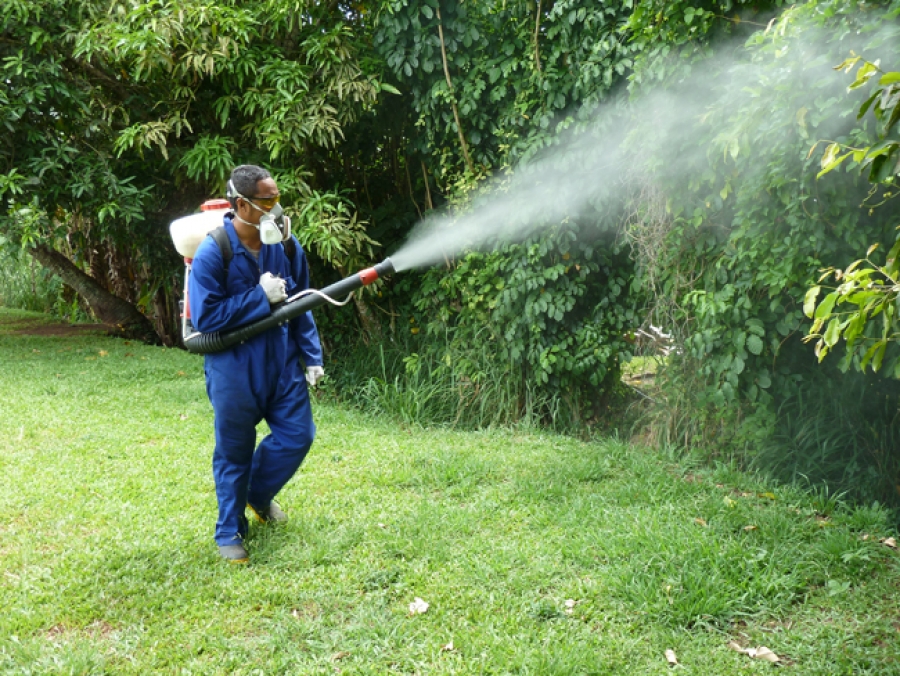
Health Inspector Charlie Short sprays insecticide around Avatea School during the height of the zika outbreak in Rarotonga earlier this year.
One case of the mosquito-borne illness dengue fever has been confirmed on Rarotonga and another four cases are suspected, says the Ministry of Heath.
Director of Community Health Services Dr Rangi Fariu said two suspected cases of dengue were reported in November. Blood samples were sent to Tahiti, with one testing positive.
Since then three locals and one tourist have presented with dengue-like symptoms. Blood samples from these cases have also been sent to Tahiti for further tests.
Fariu says the person with the confirmed case of dengue has now fully recovered.
But he says the Cook Islands is not out of the woods yet because when the current wet weather clears, there is likely to be an influx of mosquitoes.
Adding fuel to the fire is that there have been a number of confirmed cases of dengue in Samoa, making the risk of dengue arriving in the Cook Islands much higher due to people travelling between the two countries.
As well as dengue, mosquitoes can spread zika virus and chikungunya. The most common symptoms of all these illnesses are fever and joint pain, but other symptoms may include headache, muscle pain, joint swelling, or a rash.
The diseases rarely result in death, but the symptoms can be severe and disabling. Unfortunately there is still no antibiotic or treatment that can cure dengue, but seriously ill victims who are admitted to hospital are put on a drip for rehydration. Dengue can also deplete blood white cells, making the body more prone to infection.
The good news is that people who get ill tend to feel better within a week, Fariu says.
His tips to avoid these diseases remain the same: use tropical-strength insect repellent, and cover water tanks with netting.
The New Zealand Ministry of Health advises citizens travelling in countries affected by dengue to avoid ‘bug bites.’ However , this is clearly easier said than done.
The Cook Islands has been hit with dengue epidemics in the past, severely taxing the resources of Rarotonga Hospital and the health system. The most serious was in 2009 when the Cook Islands Ministry of Health had to request help from New Zealand in dealing with it, says Fariu.
“There were four other outbreaks before that one, but more recently in 2010 and 2011 we only had a couple of cases and we are managing to keep it under control.”












































